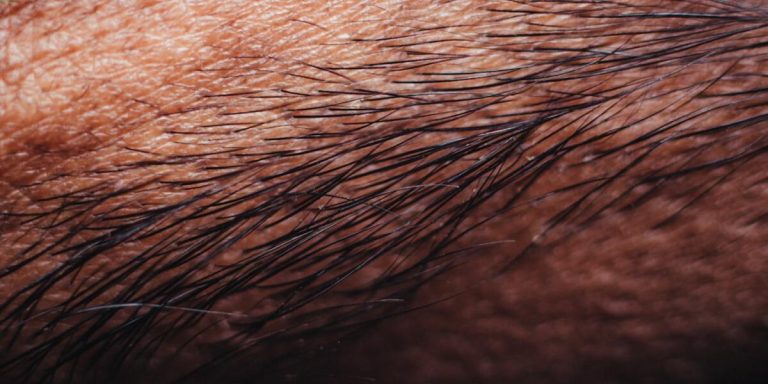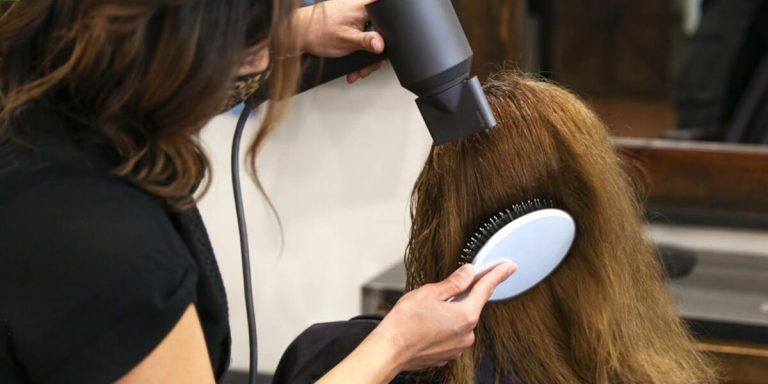Can Endometriosis Cause Hair Loss? Unveiling the Link Between this Condition and Your Hair Health
Hair loss is a common concern for many individuals, and understanding its roots can be quite complex. One possible factor that’s less discussed but equally significant is endometriosis – but how exactly can endometriosis cause hair loss? This article seeks to unravel this connection and illuminate on whether there are grounds for such association.
Endometriosis is an often painful disorder involving tissue growth beyond the uterus’ inner lining. Our main focus today revolves around examining any potential linkage it may have with hair thinning or baldness episodes in both men and women. We will also explore some of the science-backed theories supporting these claims while addressing related frequently asked questions all aimed at improving your overall hair health.
Did you know?
A little-known fact is that endometriosis, a condition affecting about 10% of women globally, can indirectly cause hair loss. This happens due to the emotional stress and hormonal imbalance it often triggers which are known factors for alopecia or hair shedding.
Understanding the Link Between Endometriosis and Hair Loss
The link between endometriosis and hair loss can be a complex one to understand. Research in recent years has shown that there could indeed be an association, although it’s not as straightforward as many people might assume. Endometriosis is an often-painful disorder where tissue similar to the lining inside of uterus — the endometrium — grows outside of your uterus, commonly within the pelvic region.
Women with this condition may experience hormonal imbalances which are notably characterized by high levels of estrogen and low levels of progesterone. This situation on its own doesn’t necessarily cause hair loss but when combined with other factors such as stress or certain medications used for treatment, it can aggravate existing conditions like Androgenetic Alopecia (AGA), leading to increased thinning or shedding.
Those struggling from both these conditions – endometriosis and AGA – should note they aren’t alone; numerous cases show concurrent symptoms manifesting across various age groups globally.
The Hormonal Imbalance Factor: How Endometriosis Affects Hair Health
Endometriosis is a complex hormonal disorder that can often disrupt the natural hair growth cycle. Many studies suggest, “can endometriosis cause hair loss?” Now let’s delve into how this all happens.
Firstly, it revolves around hormones and their impact on your body. Endocrine disorders like endometriosis frequently involve an imbalance in estrogen levels. This hormone plays a pivotal role in maintaining healthy skin and scalp by assisting with follicle stimulation for new growth.
Endometriosis typically causes the female body to produce excessive estrogen and not enough progesterone—a hormone critical for counteracting the harmful effects of too much estrogen. The imbalance between these two essential hormones, caused by chronic inflammation from untreated or poorly managed conditions, can hinder our bodies’ optimal functionality. This includes disrupting normal metabolic processes during the hair regrowth phase, resulting in thinning strands and early signs of potential baldness unless prompt intervention follows a confirmed diagnosis through necessary diagnostic procedures.
Chronic Inflammation and Autoimmunity: Tracing Their Roles in Hair Loss
Chronic inflammation and autoimmunity are two critical factors that can adversely affect your hair growth cycle. This point brings us to a crucial question – “Can endometriosis cause hair loss?” Let’s go deeper to understand the dynamics.
Endometriosis is an inflammatory condition where similar tissue lining the inside of your uterus grows outside it. Unchecked, this chronic inflammation taxes your body, causing numerous side-effects including possible hair loss due to hormonal imbalances triggered by the disease.
Autoimmune diseases such as lupus or alopecia often result in noticeable thinning and shedding of scalp hair. The correlation between autoimmune disorders like endometriosis and these conditions isn’t fully understood yet but it does suggest some connectivity at its core might be responsible for inducing significant changes leading towards baldness.
Research indicates a potential link between immune cells’ activation during chronic inflammation observed in women suffering from advanced stages of endometriosis and elevated levels of DHT hormone known for shortening follicles’ life-cycle hence contributing toward premature balding.
Endometriosis can disrupt normal follicle growth cycles, leading to a significant reduction or even cessation of new hair growth. The theory suggests that consistent stress causes the adrenal glands to overproduce hormones. Constant pain affects mental well-being and subsequently physical symptoms—like losing more hair than usual daily until very few are left.
Chronic pain from living with endometriosis often leads to stress and anxiety. In response, the body’s adrenal glands produce more cortisol. This prolonged cortisol production may harm other bodily functions and could disrupt hair growth cycles. Stress management techniques such as mindful meditation, yoga, or professional help might benefit those experiencing these symptoms.
Comprehensive Guide to Identifying Common Causes of Hair Loss
Endometriosis is a complex and often misunderstood health condition that primarily affects women in their reproductive years. Being an estrogen-dependent disorder, it can cause a multitude of symptoms beyond the standard ones associated with hormonal fluctuation, including fatigue, depression, weight gain or loss. Recent studies suggest that hair loss could also be triggered by endometriosis.
Unraveling the Impact of Stress on Your Locks
Unveiling the complex relationship between stress and hair loss is integral for a comprehensive understanding of common causes behind thinning tresses. For centuries, anecdotal evidence has suggested that high-stress levels can impact our locks significantly, leading to noticeable hair fall. But how exactly does this occur?
And more importantly – what can we do about it?
Stress essentially triggers an alarm in your body resulting in various physical reactions – one such reaction being accelerated hair shedding or alopecia areata. During periods of intense pressure or emotional turmoil, you may notice clumps of strands falling out when brushing your mane or even observing bald patches forming.
Researchers have linked severe stress episodes with three types of hair loss conditions: Telogen effluvium (TE), Alopecia Areata (AA), and Trichotillomania (TTM). TE typically presents as a diffuse thinning over many weeks on the scalp due to early entry into resting phases by growing hairs while AA involves unpredictable bouts of patchy losses caused by an immune response issue against their own follicles.
Stressful scenarios can cause hormonal imbalances that might worsen issues like endometriosis—a condition where tissue grows outside the uterus walls. This can lead to significant concerns about whether endometriosis can cause hair loss. It’s crucial to consider both physiological and psychological factors since the distress of health problems often leads to more strain, creating a vicious cycle that affects overall wellbeing and hair health.
Nutrient Deficiencies That Lead to Thinning Hair
In the realm of hair loss causes, nutrient deficiencies hold a prominent position. Our bodies require an array of essential nutrients to function optimally and this includes maintaining healthy hair growth. A deficiency in some critical nutrients can lead to thinning hair or even outright baldness.
Iron is one such crucial element for our body; it helps produce hemoglobin which carries oxygen through blood vessels to nourish your scalp and foster robust follicles. Iron deficiency, also known as anemia, may disrupt this process leading not only to falling strands but brittle nails too.
Next on the list is Zinc – involved in tissue repair and growth at cellular levels including that of new hairs. Less than adequate zinc intake could result in shedding tresses prematurely before their full life cycle completion.
Protein malnutrition isn’t uncommon either with today’s diets often rich in processed foods lacking sufficient protein content – remember each strand you see atop your crown actually consists mainly of protein called keratin!
A familiar name Vitamin D never fails making lists related health issues like bone density problems or mood disorders but few realize its link with alopecia areata – unpredictable patchy hair loss episodes attributed low vitamin D levels among other factors.
Strategies for Managing Hair Loss Associated with Endometriosis
Endometriosis, a health condition that primarily affects women of reproductive age, can lead to several unpleasant side effects – and one of the lesser-known ones is hair loss. While it’s not entirely clear why endometriosis causes this issue, some experts suggest that hormonal imbalances associated with the disease may be responsible. However, don’t lose hope as there are strategies available for managing hair loss related to endometriosis.
Firstly focusing on maintaining scalp health is imperative in controlling excessive shedding caused by any reason including endometriosis. Incorporating nutrient-rich foods such as spinach or flax-seeds into your diet helps fortify strands from root to tip while stimulating healthy growth at the follicular level. Regular scalp massages using oils like lavender or rosemary can also help improve blood circulation and soothe inflammation leading often noted under these conditions.
Manage stress effectively to prevent exacerbating hair fall issues, especially for those with endometriosis. Chronic stress can increase cortisol production, leading to more thinning hair. Incorporate proven techniques to calm your body and reduce this strain on your tresses:
- Practice yoga
- Meditate regularly
These approaches may seem cliched but are effective in managing stress-related hair loss in individuals with autoimmune disorders.
Medicinal Approaches to Balancing Hormones and Reducing Symptoms
The relationship between endometriosis and hair loss may not immediately seem apparent, but the two can be intrinsically linked. One burning question you may have is “can endometriosis cause hair loss?” The answer is that it absolutely can due to hormonal imbalances caused by this condition.
One way of managing hair loss associated with endometriosis involves balancing hormones through medicinal approaches. After all, an imbalance in female hormone estrogen plays a vital role in both conditions: Endometriosis feeds on excess estrogen while too much or fluctuating levels lead to hair thinning or shedding.
Firstly, consider Hormone Replacement Therapy (HRT). If your body isn’t making enough hormones because of endometriosis symptoms or treatments like surgery, HRT could help balance things out again. This treatment helps reduce fluctuations and brings about equilibrium which might restore normalcy in regards to your tresses too!
Lifestyle Adjustments: Diet, Exercise, and Stress Management Techniques
Understanding the connection between endometriosis and hair loss is crucial for formulating effective strategies to manage this issue. One of these strategies involves making lifestyle adjustments such as dietary changes, incorporating exercise into your routine, and adopting stress management techniques.
Diet plays a significant role in maintaining overall health including hair growth. The keyword here is ‘balance’. A balanced diet rich in proteins, vitamins (especially Vitamin D), minerals like Iron & Zinc can mitigate endometriosis-related hair loss issues.
Consuming foods with natural anti-inflammatories properties also helps by reducing inflammation caused due to hormonal imbalances brought about by endometriosis.
Exercise is another essential factor contributing both towards managing symptoms related to Endometriosis and boosting general well-being that includes good hair health too! It’s important however not diving headlong into intense workout routines but starting slowly focusing on exercises found helpful especially about conditions causing hormonally-induced inflammatory responses like Yoga or Pilates which have shown promising results.
How does our mental state impact physical wellbeing? Significant indeed because chronic stress triggers excess production of cortisol hormone disrupting various biological processes comprising healthy hair cycles leading eventually towards thinning , shedding or premature greying . Hence grasping efficient handling methods manages subsequent fallouts elevating furthermore quality life-quota despite existing medical challenges .
Conclusion
So, can endometriosis cause hair loss? The data we’ve unraveled suggests there could be substantial links between the two. While it might not always spell out in clumps of hair on your brush, hormonal imbalances linked with this condition certainly seem to hold a ticket to potential thinning and texture changes.
It warrants us keeping our eyes wide open – as bold as our desire for lustrous locks!
While you continue solving life’s puzzles like these one strand at a time, remember that knowledge is power when dealing with any health issue – especially those that impact your self-confidence so directly. Don’t stop here! Browse around our website for more insights into “Hair Loss Causes”.
Stay informed and keep blooming because how you take care of yourself mirrors who you are – resiliently radiant!







